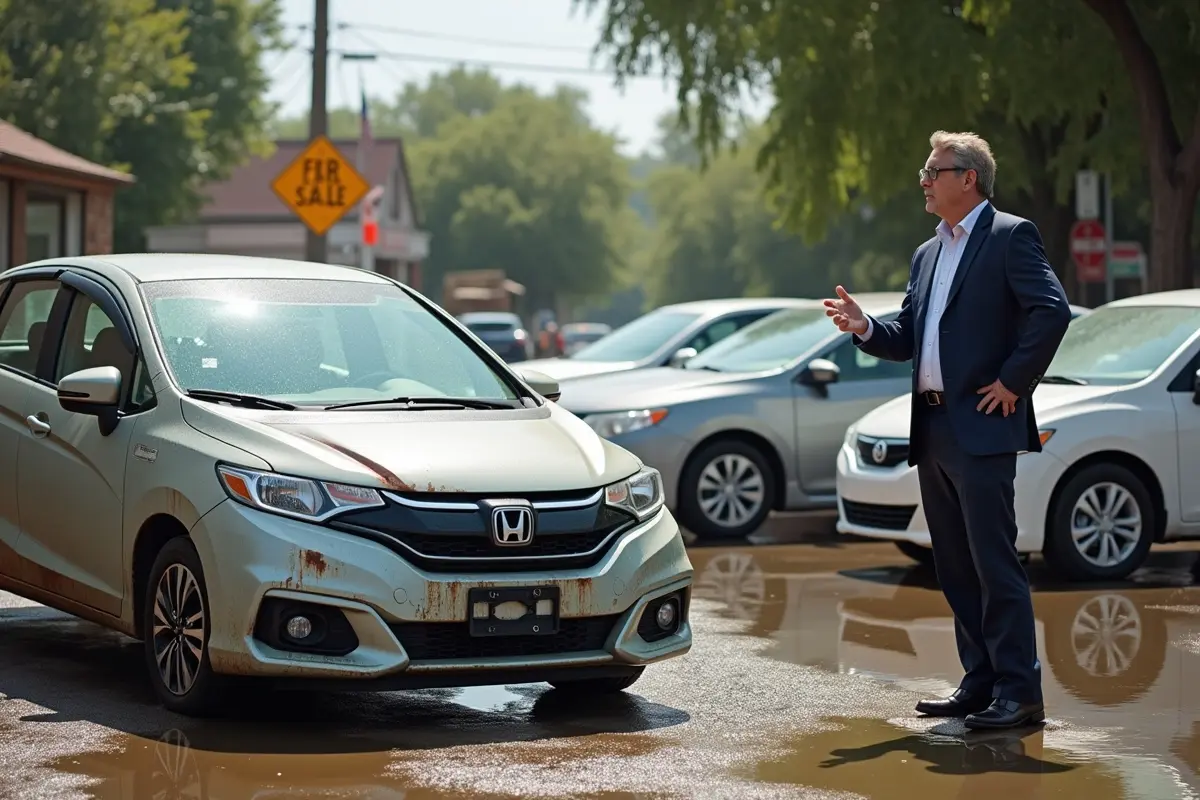
Is It Worth Selling a Flood-Damaged Vehicle? Pros and Cons
Flood-damaged cars can cause a real dilemma. You’ve been through a stressful event, and now, you’re left with a vehicle that’s potentially beyond repair. But what should you do with it? Is it worth selling a flood-damaged vehicle? Or is it better to just let it go?
It’s not an easy decision, especially when you’re dealing with a car that may not ever run properly again. The good news is that there are buyers out there—yes, companies will even offer cash for junk cars, including flood-damaged ones. But before you make a move, let’s break down the pros and cons of selling a flood-damaged vehicle.
What Happens to Cars Damaged by Floods?
Before diving into the pros and cons, it’s essential to understand what happens to vehicles that get caught in floods. When water gets into the engine, electrical systems, and interior, it can cause severe damage. Even after repairs, a flood-damaged car may experience long-term issues such as:
- Persistent electrical problems
- Corrosion of essential components
- Mold and mildew inside the vehicle
- Reduced overall performance
While some flood-damaged cars can be repaired, the damage is often extensive, and fixing the vehicle might cost more than it’s worth. That’s why many people consider selling the car instead of sinking money into repairs.
The Pros of Selling a Flood-Damaged Vehicle
Let’s look at why selling your flood-damaged car might actually be a good idea.
1. Quick Cash – Selling your flood damaged vehicle to a company that buys junk cars is a quick and easy way to get cash in your pocket. These companies specialize in buying vehicles that no longer function properly, so they’ll take your car as-is, without requiring you to make repairs.
2. No Repair Hassles – Repairing a flood-damaged car is often expensive and time-consuming. By selling the vehicle, you’re avoiding the headache of multiple trips to the mechanic and potentially costly repairs that may not even fix all the issues.
3. Eco-Friendly Disposal – When you sell your car to a junkyard or a company that buys flood-damaged cars, they often recycle the vehicle. This means that any usable parts can be salvaged, and the rest of the car can be disposed of responsibly, reducing environmental impact.
4. Saves Space – Let’s face it, having a flood-damaged car sitting around isn’t doing you any favors. Selling it clears up valuable space in your garage or driveway, allowing you to focus on finding a new, reliable vehicle.
5. Avoid Depreciation – Flood-damaged cars lose their value quickly. Even if you’re tempted to hang onto the car with hopes of future repairs, its value will continue to drop. Selling it now allows you to get some cash before it becomes entirely worthless.
The Cons of Selling a Flood-Damaged Vehicle
Of course, selling a flood-damaged vehicle isn’t all sunshine and quick cash. There are a few downsides you should consider before making your decision.
1. Lower Sale Value
A flood-damaged vehicle won’t fetch anywhere near what it was worth before the flood. Companies that buy junk cars are typically looking to pay as little as possible since they’ll either scrap the car for parts or sell it at auction. You’ll get cash, but don’t expect a windfall.
2. Limited Buyer Options
You can’t just sell a flood-damaged car to any buyer. Most private buyers aren’t interested in a car that’s been submerged in water, even if you’re upfront about the damage. This limits your pool of potential buyers to those who specialize in junk cars or salvage vehicles.
3. Disclosure Obligations
In many states, you’re legally required to disclose that a car has been damaged by a flood when you sell it. This isn’t necessarily a bad thing, but it’s something to keep in mind. Trying to sell a flood-damaged car without disclosing the damage could lead to legal trouble down the road.
4. Emotional Attachment
If you’ve owned the car for a long time, selling it—even in its damaged state—can be emotionally difficult. Some people hold onto flood-damaged cars with the hope of fixing them up later, only to realize that they’ll likely never have the time or money to do so.
5. Paperwork Hassle
Selling a flood-damaged car might come with extra paperwork, especially if the car was declared a total loss by your insurance company. Be prepared for potential additional steps to complete the sale.
Should You Sell or Not?
So, is selling your flood-damaged car the right choice? Ultimately, it depends on your personal situation. If the repairs are too costly and you need quick cash, selling to a company that buys junk cars could be your best bet. On the other hand, if you’re emotionally attached to the car or think you might want to repair it in the future, you might decide to hold onto it a bit longer.
But keep in mind that holding onto a car that’s beyond repair might end up costing you more in the long run—both in terms of money and time. Selling the car as-is can be a smart way to move on without the stress of repairs and ongoing maintenance issues.
Wrapping It Up
If you’re considering selling a flood-damaged vehicle, weigh the pros and cons carefully. While it might not be the easiest decision, it’s often better to get something for the car now rather than letting it sit and lose value. Plus, many companies are happy to provide cash for cars that might seem worthless. You could clear up space, avoid repair hassles, and put some money in your pocket—all while doing something good for the environment by ensuring the vehicle is properly recycled.

